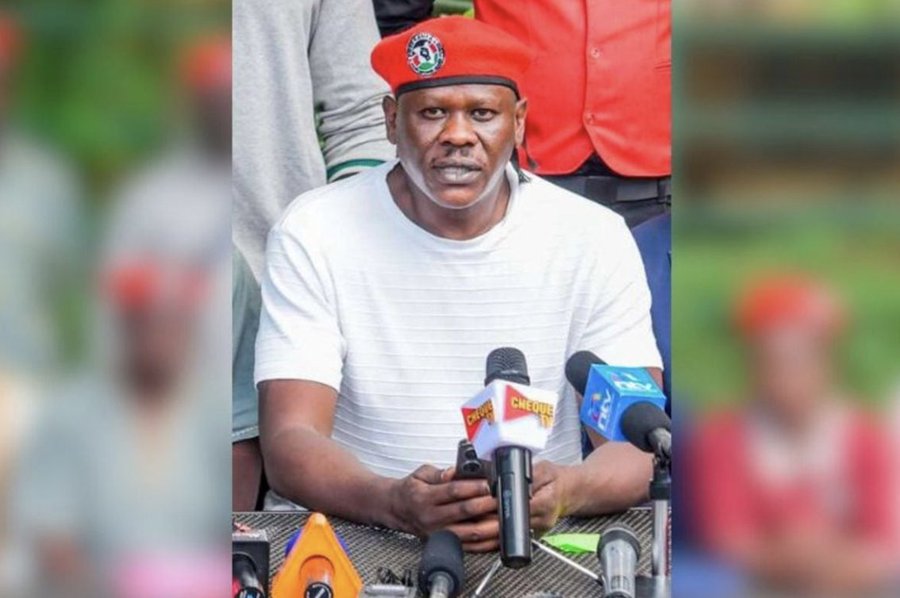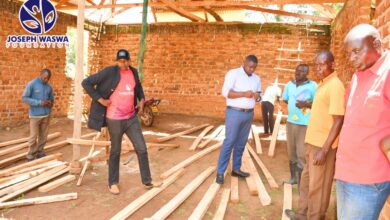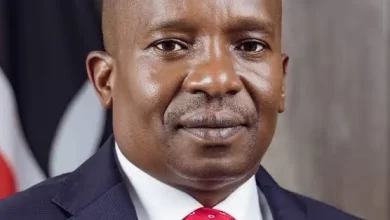Activist Bob Njagi calls for justice following a 32-day kidnapping incident.
Activist Bob Njagi Demands Justice After 32-Day Abduction

Activist Bob Njagi bravely shared his harrowing experience of a 32-day abduction during an emotional press briefing in Kitengela.
For the first time, he recounted the chilling details of his captivity, where he endured isolation, neglect, and fear.
Njagi’s story highlights the growing concern over human rights violations and forced disappearances in Kenya.
As he calls for justice and accountability, his ordeal sheds light on the urgent need for action against the rising tide of abductions targeting activists and innocent citizens alike.
Chilling Details of Bob Njagi’s Abduction
Njagi described his abduction in chilling detail. It began when masked men kidnapped him from a passenger vehicle on his way to Kitengela from Nairobi.
“I was shoved out of the vehicle and forced into a white car while being assaulted with kicks and blows,” he said. Blindfolded and handcuffed, he endured a 30-minute drive in silence before reaching his destination.
During his captivity, Njagi was confined in a dark room measuring just six by four feet, left handcuffed and blindfolded for two days.
“I was on the floor with no food,” he recalled. He received minimal care, with one of his captors occasionally providing water. After two days, the handcuffs were moved to the front, and he was transferred to another dark room with a small mattress and blanket.
“I stayed locked up for the next 30 days. I had minimal interaction, with only two daily visits from my captors,” Njagi explained.
While he suffered in captivity, his family desperately searched for him, unaware of his location. His abductors shifted him between secret locations, isolating him from the outside world.
Njagi’s release coincided suspiciously with the swearing-in of the new Inspector General of Police, Douglas Kanja.
Demands for Justice and Accountability
Despite his newfound freedom, Njagi’s ordeal raises serious questions. Who orchestrated his abduction? Why did it happen? He described his grim conditions, detailing how an officer provided him with a cup of tea each morning and replaced a waste bucket.
Lunch was a meager meal, barely enough to sustain him. “I survived by the mercy of God. The food was unpalatable, but I forced myself to eat to stay alive,” he said.
Njagi’s health deteriorated rapidly. He lost significant weight and suffered dehydration. “Once a week, I was blindfolded and led to a shower for just 10 minutes before returning to my cell,” he added.
Now, Njagi plans to sue the state, demanding justice for himself and the victims of rising abductions across Kenya.
“The government must compensate families who have lost loved ones to these unlawful disappearances,” he insisted. He also called for compensation for those affected during anti-government protests, stating, “I have forgiven those who harmed me, but justice must prevail for everyone.”
Despite police intimidation during the press briefing, the FreeKenya Movement managed to hold their event in a different location. The movement’s Secretary General, Nichorus Oloo, condemned the targeting of human rights defenders. “The police must respect the constitutional rights of all citizens,” he said.
Njagi’s account shines a light on the troubling trend of abductions in Kenya, urging the government to take immediate action against these violations.





